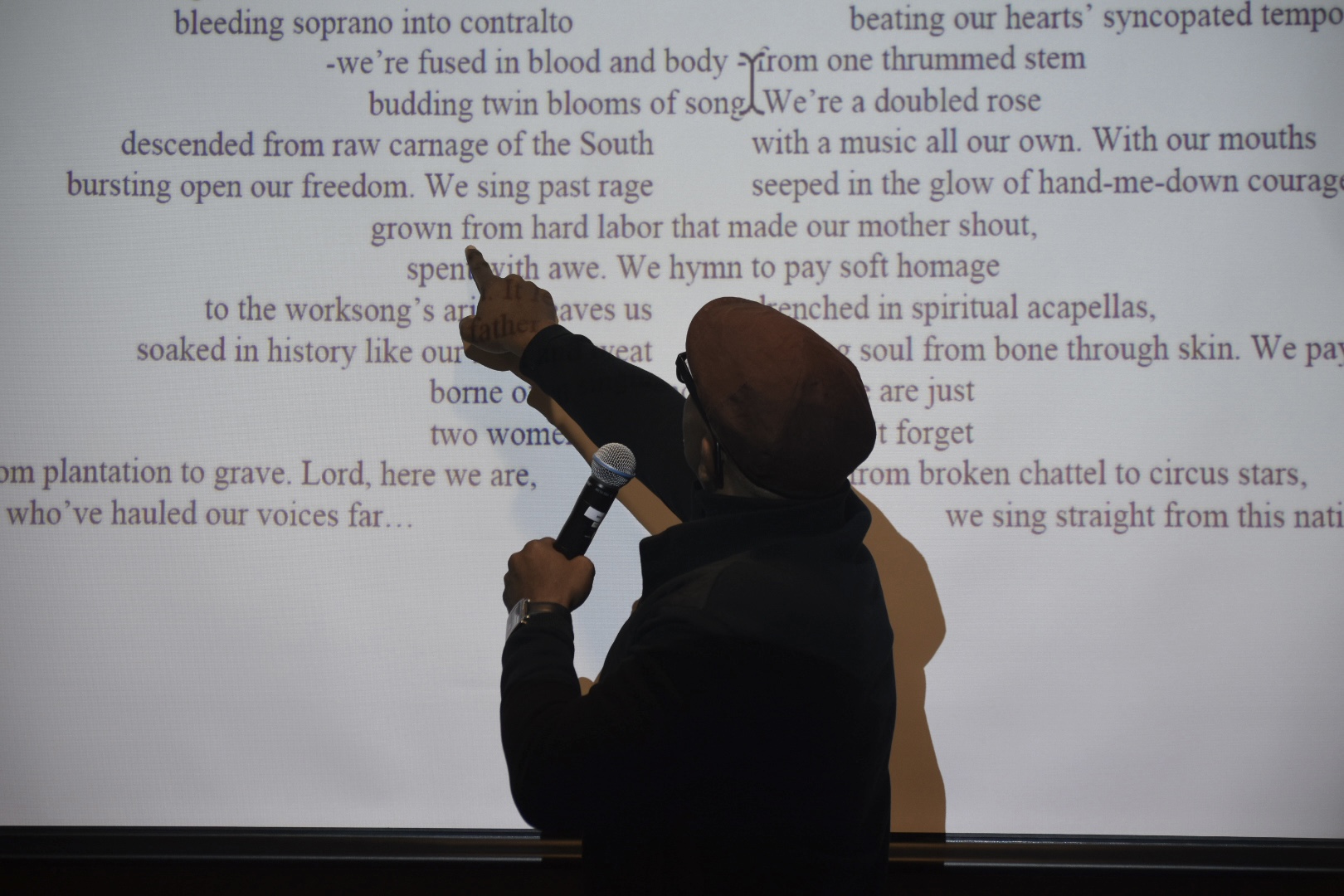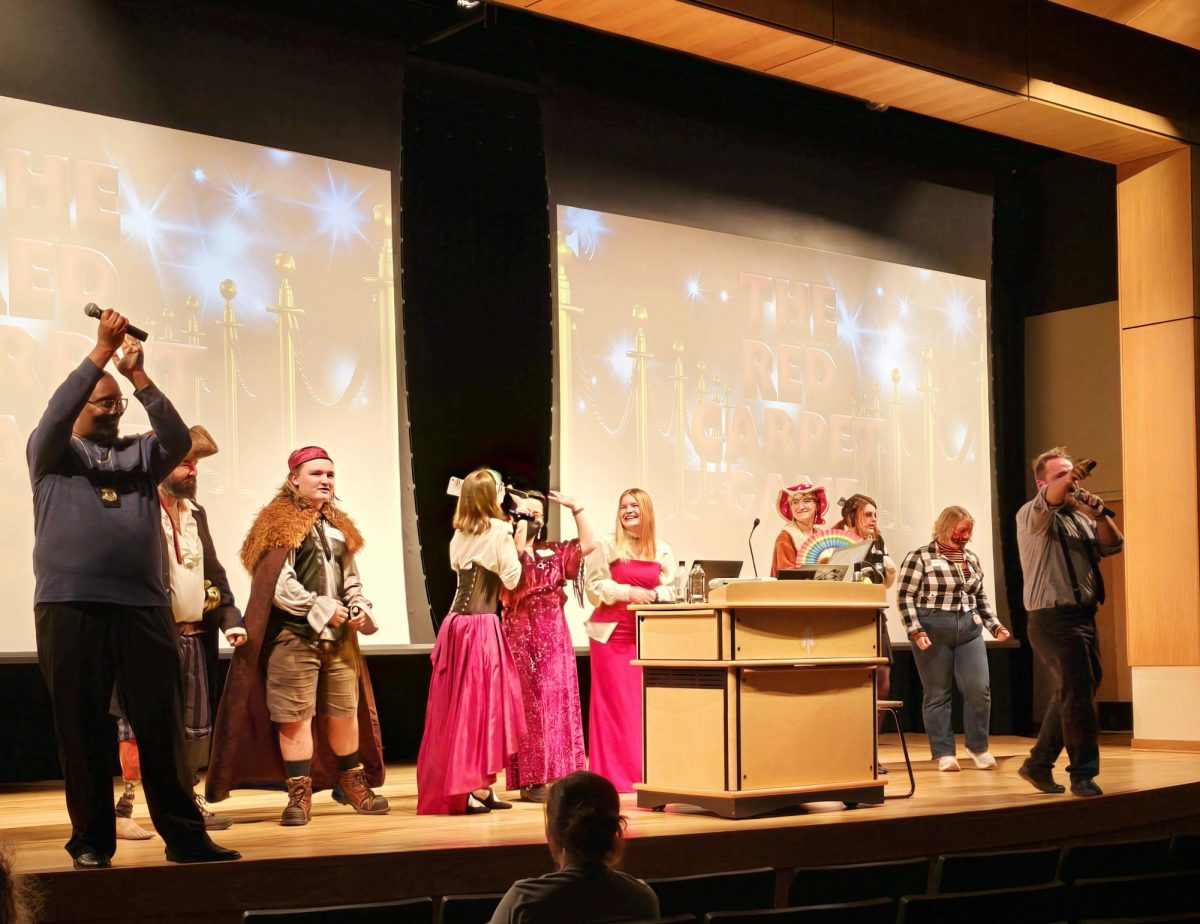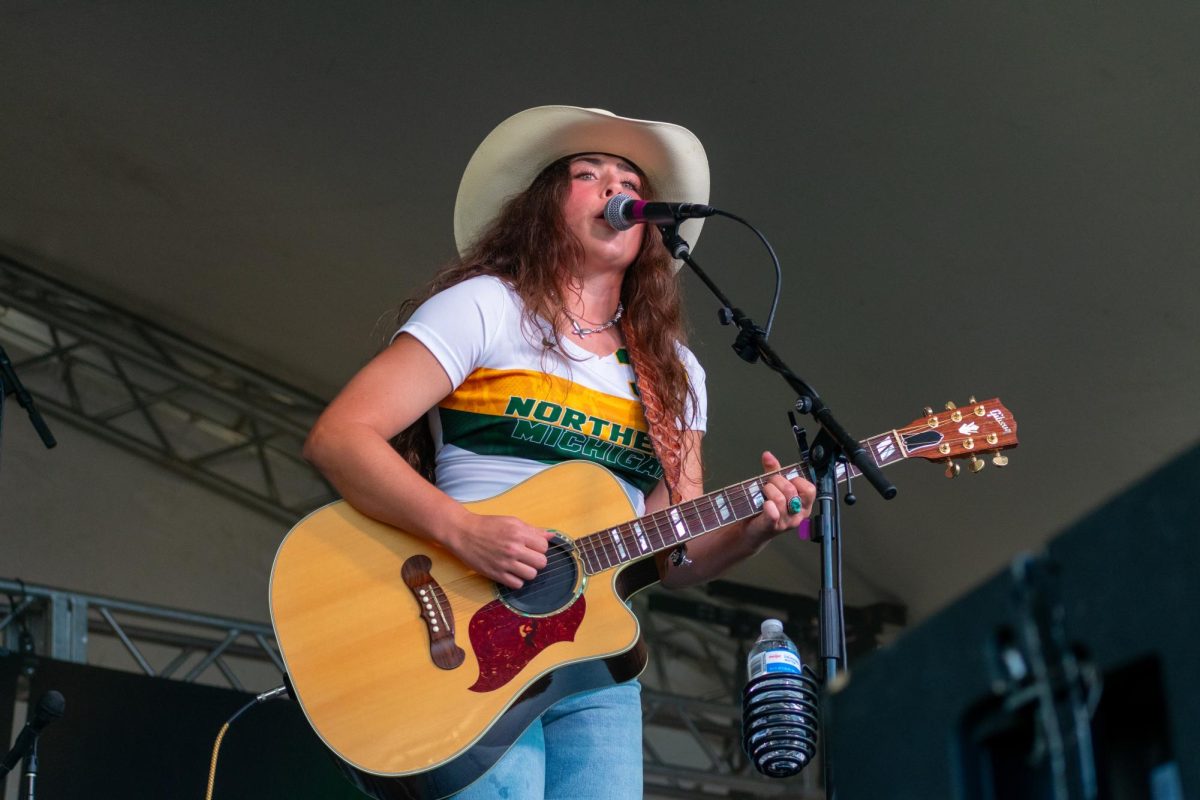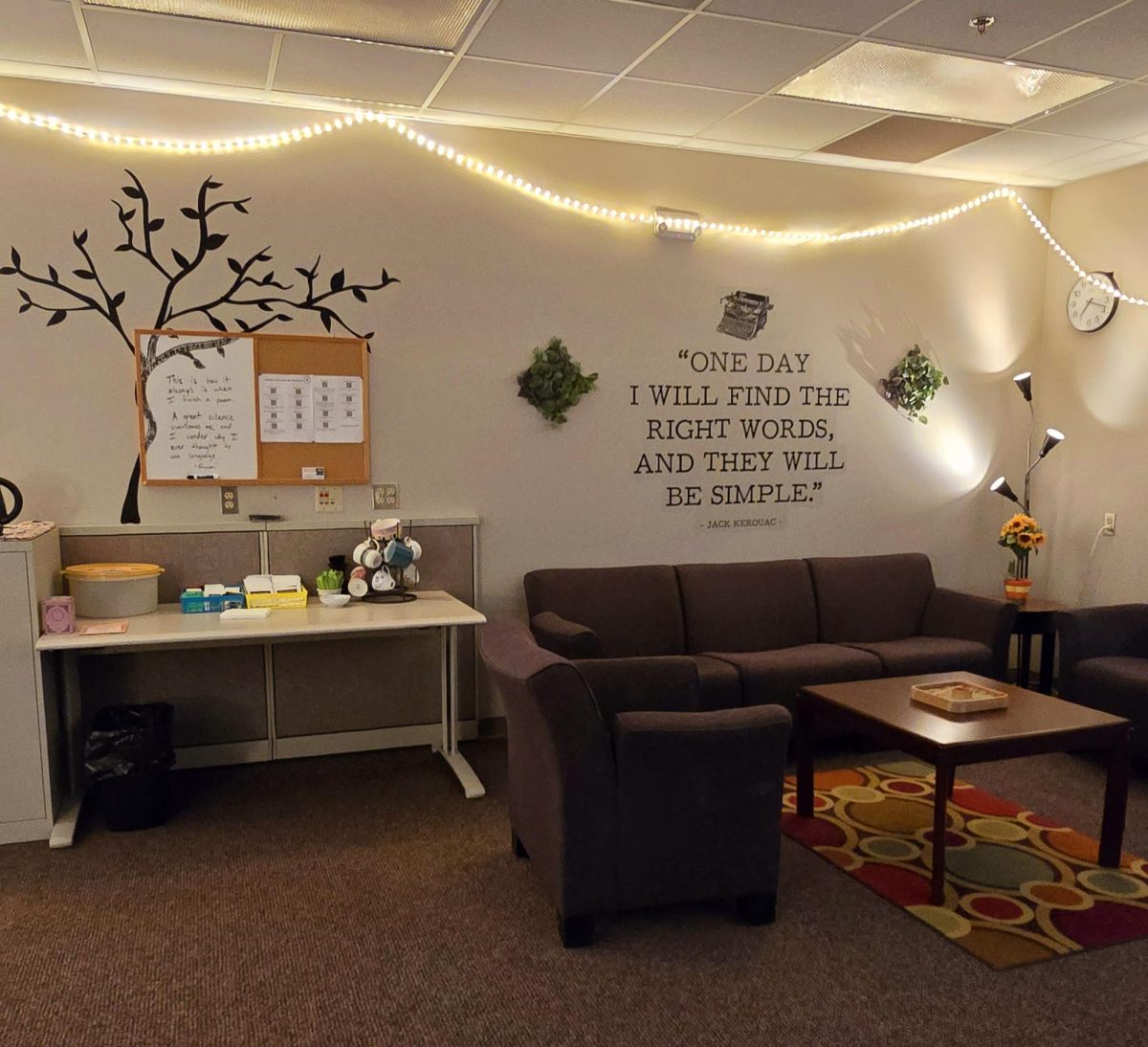The minute Tyehimba Jess began reading his poetry, it was made clear that he had years of writing under his belt. The words flowed smoothly with much emphasis and power as he told the story of the McKoy twins, who were conjoined at the hip and born into enslavement. Years after their death, he gave them a new voice in his sonnets.
Pulitzer Prize Winner and Poet Tyehimba Jess visited NMU on Wednesday, Feb. 29, to read some of his poetry and speak on its meaning. After reading specific works, he broke down the meaning and context of each one as he went on. Many of the poems he read came from his poetry book Olio, published in 2016. He previously published his book Leadbelly in 2005 and continues to write poetry today.
“There is something to be had when you see the author who wrote something really good perform it or recite it aloud to you with voice and body and breath, and it just makes art,” Visiting Writers Series Director Matthew Frank said. “It bursts it off of the page, and it just lives, and sings, and breathes, and dances. There’s just a dynamic to it in that way.”
As Jess writes, he acknowledges the black voices lost by the lack of technology and privilege. His poetry carries the voices on and reflects the hardships of black lives. In his speech, Jess discusses how important it is to be passionate about what one writes. Whether it be with love or rage, a person’s obsession with something leads to the creation of valuable art.
“Inspiration is uncovering your obsession and chasing it and tumbling down the rabbit hole, and making unique, singular art out of it,” Frank said. “The act of art making is what makes our lives bearable.”
Many of Jess’s works surround black historical artists who were mistreated and misrepresented. The McKoy twins, for example, were brutalized all their lives but could speak multiple languages, dance, sing and play instruments. Other figures like “Blind” Boone and Tom were also recognized in his art. English Student Emily Shuga expressed her appreciation for the recognition given to such talented people.
“A lot of [Jess’s speech] revolved centered historical figures that deserve a lot more attention,” Shuga said. “That attention needs to be given to a lot of people who are buried in the past and need to be brought forward, known and understood.”
Perhaps the most astounding part of Jess’s speech was when he announced that he’d be sharing a newer piece of art that he wrote very recently. The poet pulled out a harmonica and began playing and singing a blues song. The song referenced recent issues regarding Palestine and left many audience members in tears. As it turns out, blues and music in general take a substantial role in Jess’s life as a poet, and as a human.
“I see [blues music] as a heritage,” Jess said. “Blues is my heritage. Black folks begat the blues. There is a very close tie between the blues, work songs, spirituals, and in many ways that was the oral literature that we were able to possess and nurture amongst ourselves, putting our own songs and rhythms into them, when we were not allowed to read and write upon pain of death. As such, they carry a certain kind of energy with them.”
Silence carried after Jess read, chanted and sang his artwork. After a Q&A, audience members were able to speak to the poet and purchase his books. People left the room that night in awe of the talent that seeped out of each of Jess’s poems.








